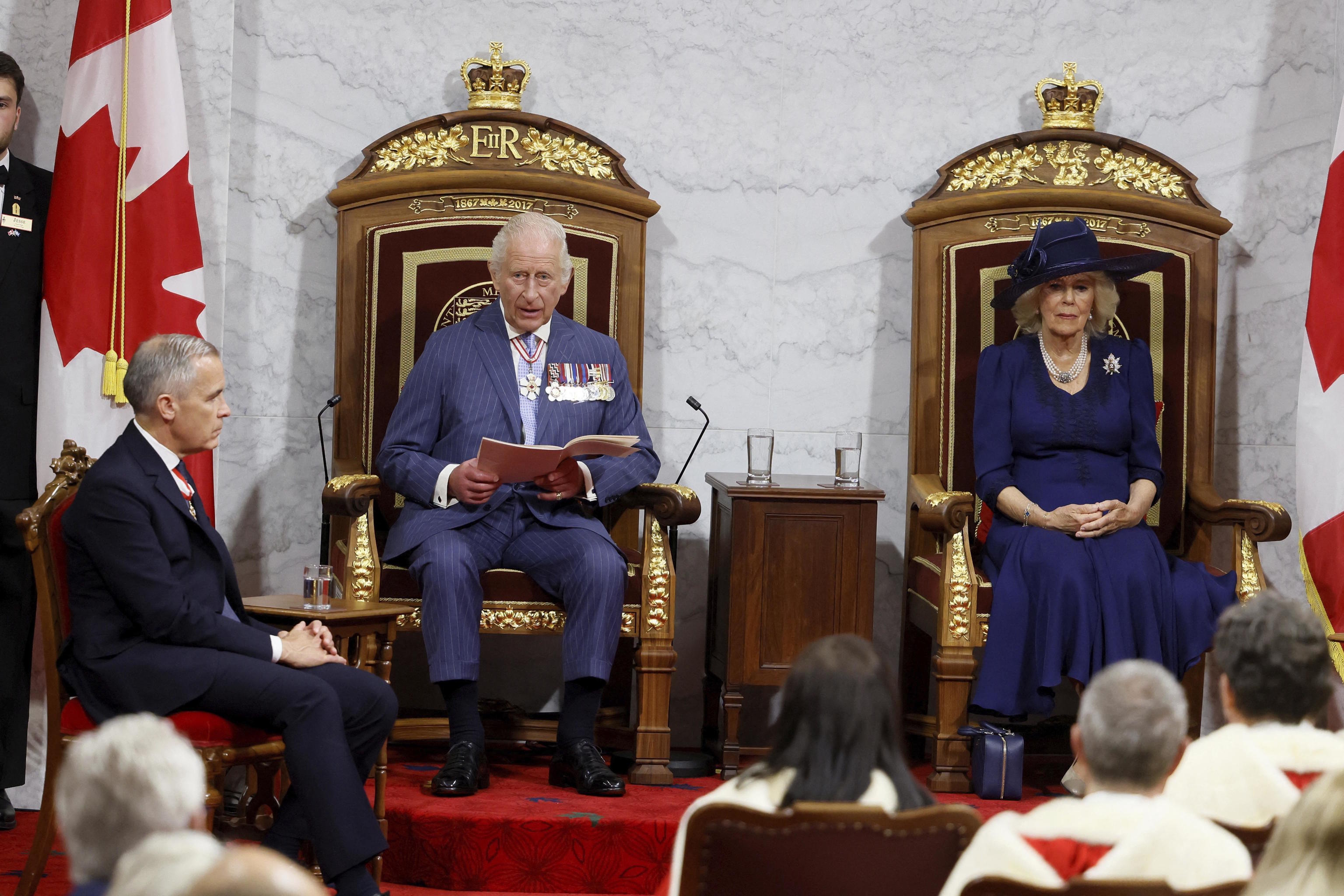A tribute to freedom, unity, diversity, to everything that has made and continues to make Canada a strong, unique country that acknowledges its past mistakes and honors its communities. An invitation to lead "a coalition of like-minded countries that share its values, believe in international cooperation, and in the free and open exchange of goods, services, and ideas," now that Washington threatens to destroy the international order. An argument against everything that Donald Trump and his government represent and are trying to do. "In this rapidly evolving new world, Canada is ready to lead," stated King Charles III on Tuesday, receiving a standing ovation at the Senate in Ottawa.
The past nine months have probably been the most intense, eventful, and bewildering in Canada's recent history. The country has not only witnessed the fall of Prime Minister Justin Trudeau after 10 years in power but has also seen the end of an era. A political era, seemingly the downfall of a government, a party, and a worldview. A sociological era, with significant doubts about a migration and integration model. An economic era marked by inflation and housing access issues. And above all, a geopolitical era, with the realization that, following Donald Trump's return to the White House, the great continental alliance was a thing of the past, and the consensuses and pillars on which the country has operated since the end of World War II no longer hold.
Therefore, in unprecedented times, King Carlos III delivered an extraordinary speech, emphasizing that Canada remains an example to the world, "a force for good (...) as the anthem reminds us: 'The true North strong and free!'," he said to applause.
The monarch delivered his speech to Parliament on Tuesday, a meeting of enormous symbolism that did not escape anyone's notice. Only on two previous occasions has a king - in this case, a queen, his mother, Queen Elizabeth II - read the Speech from the Throne, similar to the one at Westminster at the beginning of each session of the British Parliament. Queen Elizabeth II did so in 1957, just four years into her reign, and the second time in 1977 as part of a tour for her Silver Jubilee.
In an address in English and French, Charles III, on his twentieth visit to the nation over more than half a century, stated that every time he sets foot on Canadian soil, "a little more of Canada seeps into my blood and goes straight to my heart," affirming that he has always felt a deep admiration "for Canada's unique identity, for its courage and sacrifice in defense of national values, and for the diversity and kindness of Canadians."
"Today, Canada faces another critical moment"
He drew very clear analogies, mentioning that when Queen Elizabeth II sat on that same throne almost 70 years ago, World War II was a "fresh and painful memory," and "freedom and democracy were threatened" by the Cold War. After mentioning the Vietnam War, the fall of the Berlin Wall, and the beginning of the "War on Terror," the monarch acknowledged that "today, Canada faces another critical moment" and that "democracy, pluralism, the rule of law, self-determination, and freedom are values that Canadians deeply appreciate and that the government is determined to protect."
The King, who invited Donald Trump to a State Visit to the United Kingdom, avoided direct clashes but left several messages, stating that "Canadians can offer much more than any foreign power on any continent could ever take from them," that by staying true to their values, Canadians can "build new alliances and a new economy that benefits all Canadians", and emphasizing that the relationship between Canada and the United States must be "rooted in mutual respect and based on common interests, to generate transformative benefits for both sovereign nations."
His entire intervention, in fact, was a roadmap against Trumpism and what it symbolizes. He spoke in French praising diversity, Quebec culture, and emphasizing that Canada respects its official and indigenous languages, distancing himself from Trump, who signed an executive order designating English as the only official language of the United States. Carlos III insisted that the government is "determined to protect" the institutions that project to the world, citing the specific example of Radio Canada. Once again, an allusion to the White House's campaign against the media and to cut funding for public radio. Or the reference that the government will always protect Canada's nature, now "more than ever," while its southern neighbors abandon climate and environmental agreements.
